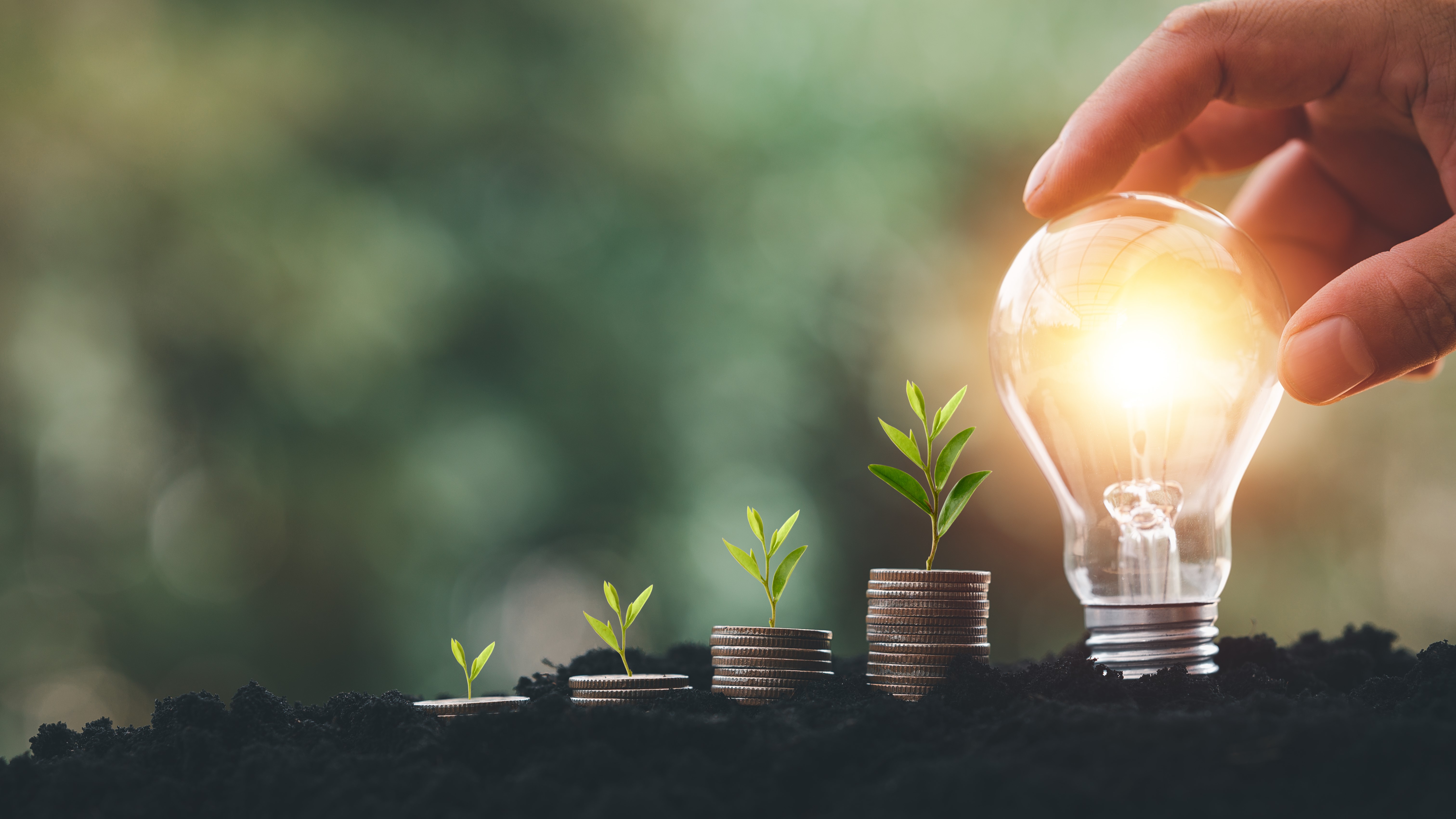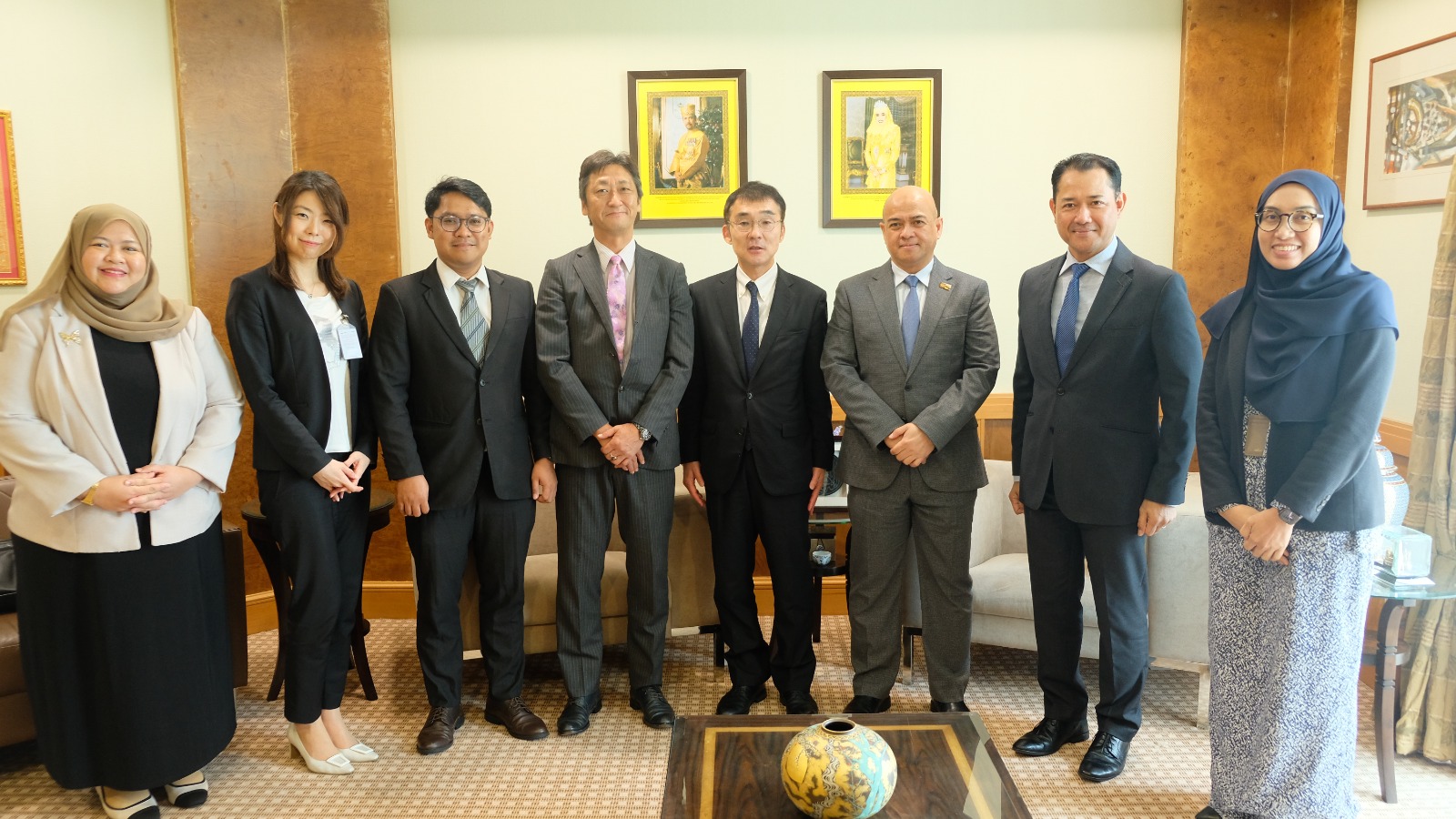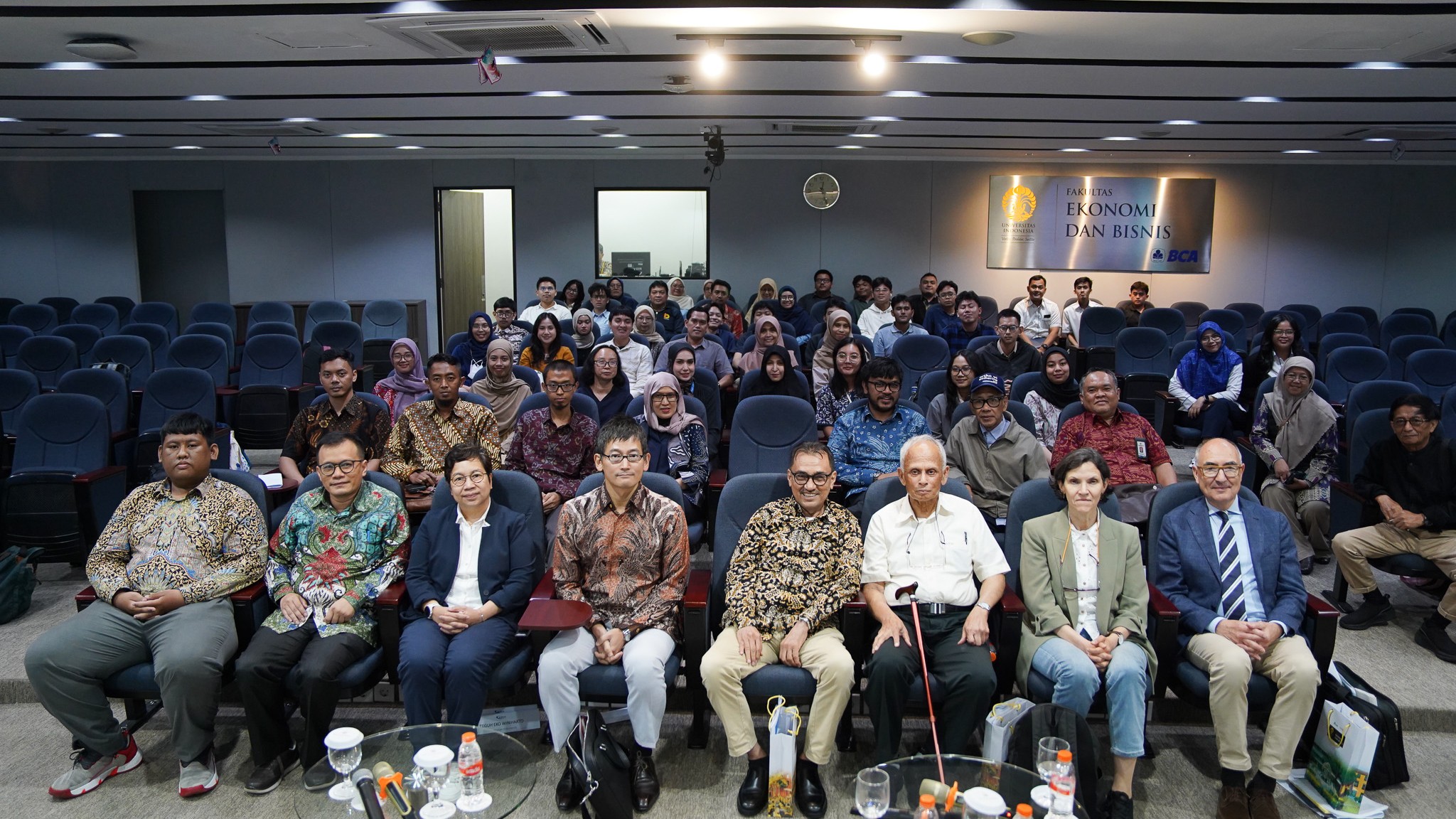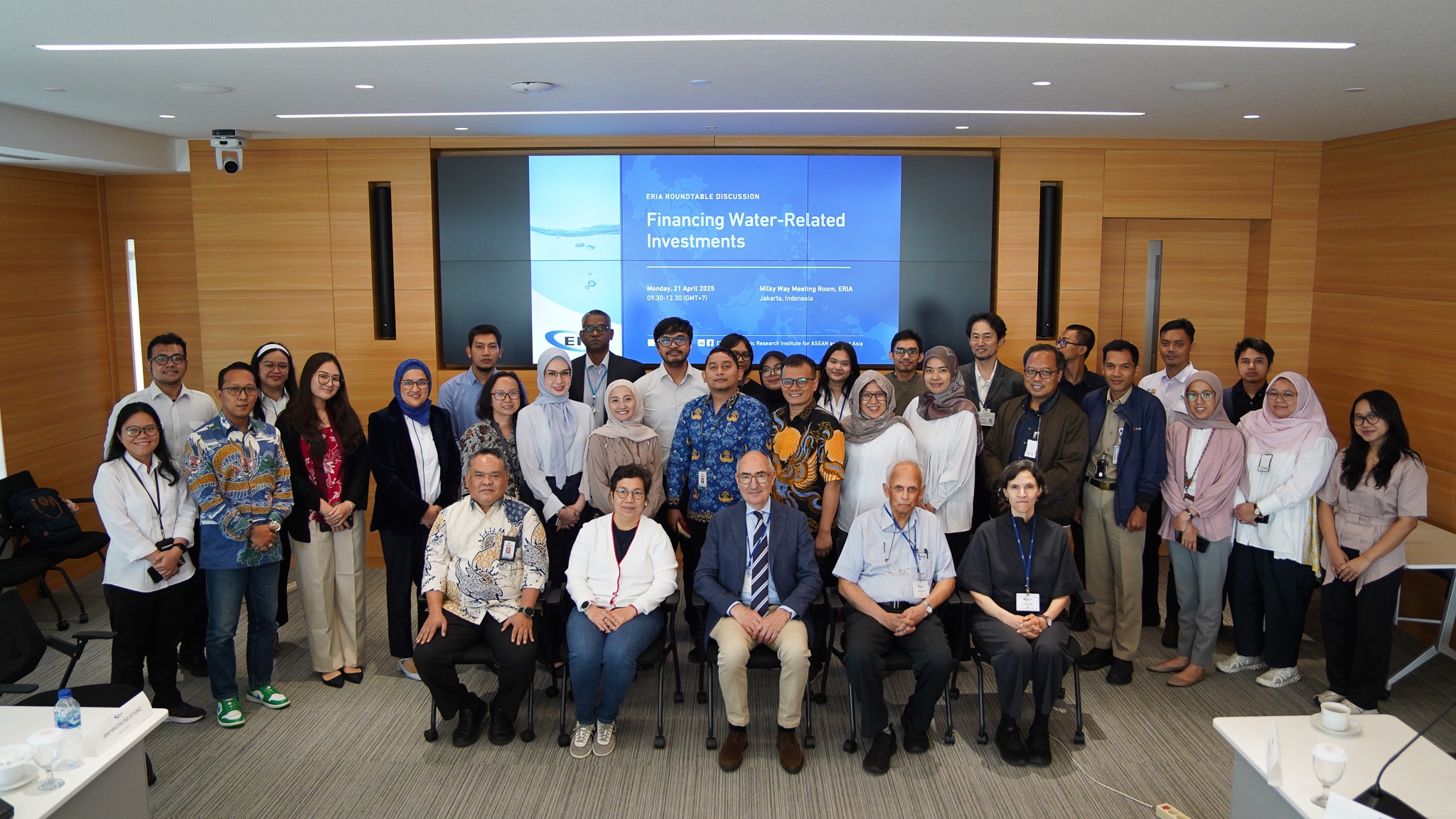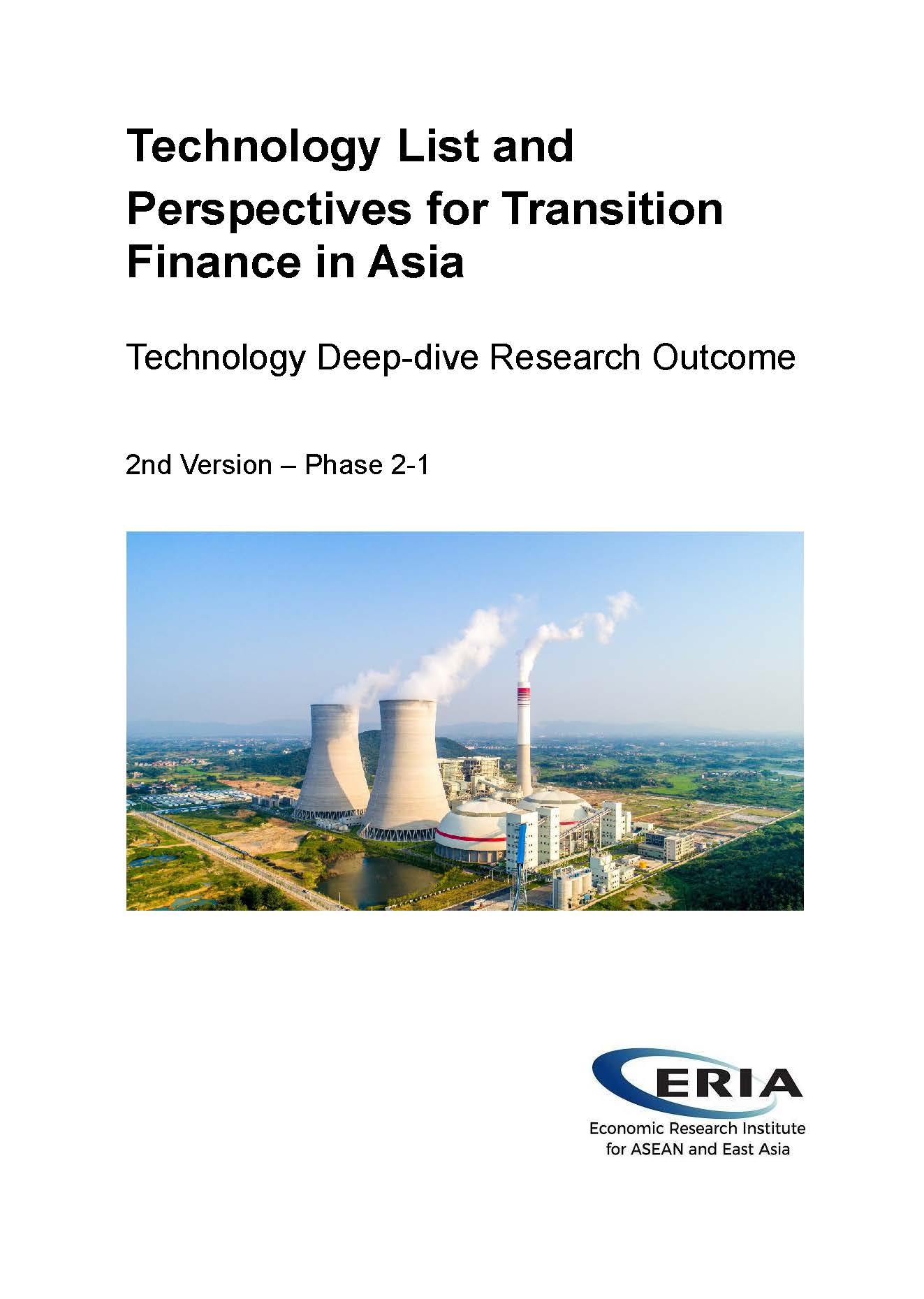Forests for Finance: How Nature-based Solutions Can Drive Carbon Markets in Asia
Date:
22 April 2024Share Article:
Print Article:
By Dr Venkatachalam Anbumozhi, Senior Research Fellow for Innovation: As the world grapples with climate change, Asia is at a crossroads. Home to rapidly developing economies and vast ecological wealth, the region faces a stark challenge – balancing economic growth with environmental sustainability. Nature-based Solutions (NbS) – protecting and restoring natural ecosystems like forests and mangroves – offer a promising path forward. But can these solutions truly flourish without robust carbon markets and, crucially, strong regional cooperation in Southeast Asia?
NbS boast a unique advantage, as they offer a natural way to mitigate climate change. Forests, for example, act as carbon sinks, absorbing and storing atmospheric carbon dioxide. Mangroves provide crucial coastal protection, while wetlands filter pollutants and regulate water flow. By investing in NbS, Asian countries and companies can not only reduce emissions but also bolster biodiversity, improve water security, and enhance the livelihoods of local communities.
Carbon markets, where companies can offset their emissions by purchasing carbon credits generated from NbS projects, can incentivise investments in these natural solutions. While Europe and the United States remain the largest regions where most of the carbon trading takes place, many foreign players are looking to Asia to tap initiatives that facilitate the buying and selling of voluntary carbon credits and to capture the increasing investments into the region. However, question marks continue to hang over the ability to scale carbon markets in the region despite the market structure, which currently consists of a variety of private and public systems.
A thriving Asian carbon market would create a financial reward for protecting and restoring ecosystems, attracting investments, and scaling up NbS projects such as afforestation, regenerative agriculture, and mangrove conservation. This could unlock significant potential – Southeast Asia alone has been estimated to hold 30% of the global potential for carbon offsets from NbS by 2050.
Some successful examples are seen in China’s new Certified Emission Reduction scheme, which allows offsets of up to 5 percent of annual emissions. In Australia, the use of domestic voluntary carbon credits is preferred, which has resulted in international participants of NbS projects paying a premium. Japan aims to generate a total of 0.1 gigatons of carbon credits through the Joint Credit mechanism by 2030, and 700 companies have already endorsed the concept. Indonesia, which owns millions of peatlands and forests, is looking for new market mechanisms to capitalise on the potential. Many Southeast Asian countries still do not have a proper framework to establish clear guidelines and regulations for carbon markets, but some, such as Cambodia, Thailand, and Malaysia, are choosing to accept and adopt their voluntary carbon standards by Article 6 of the Paris Agreement.
However, the success of NbS and carbon markets in Asia hinges on strong regional cooperation. Here's where the three challenges lie. First, fragmented policies and diversified standards. The current policy landscape for NbS and carbon markets in Southeast Asia is highly fragmented. Each nation has its own set of regulations and methodologies for carbon project development and credit verification. This inconsistency creates uncertainty for investors and hinders the development of a seamless regional or global market.
Second, lack of transparency in data collection and sharing. Reliable data on the carbon sequestration potential of different NbS projects, and the socio-economic impact on local communities, is crucial for the effective functioning of carbon markets. However, data collection and sharing mechanisms remain underdeveloped in many countries in Southeast Asia, which is home to the world’s mega-diverse forests, harbours rich species, and vast ecosystems.
Third, insufficient sectoral capacity and technical expertise. Implementing NbS projects requires local expertise on the costs and monetising the tangible benefits with a carbon price discovery. However, many sectoral bodies and rural communities in Southeast Asia lack the necessary skills and resources to effectively participate in NbS development, management, and linking to the regional and global markets. This can lead to social inequities and project failures.
Regional cooperation can be the key to overcoming these hurdles. By working together, ASEAN and East Asia nations can develop harmonised standards for project development, monitoring, and verification (MRV) of NbS projects. The Economic Research Institute for ASEAN and East Asia (ERIA) survey found this would create a more predictable environment for investors and facilitate the cross-border trading of carbon credits.
Singapore, Indonesia, and Malaysia have already established voluntary carbon markets, building momentum for upscaling NbS investments. Collaboration among these countries and with other markets can lead to the establishment of a regional knowledge hub. This regional platform could facilitate data sharing, best practice exchanges, and capacity building for NbS project development and monitoring. Additionally, it could promote transparency by establishing a centralised registry for carbon credits generated through NbS projects in the region.
Many NbS initiatives, encompassing climate mitigation and adaption strategies implemented in ASEAN, have yielded positive outcomes. However, many NbS projects funded by public investment also failed to reach the commercialisation phase. New regional cooperation initiatives can facilitate knowledge exchange and capacity-building programs focused on effective NbS project development and management. This would also empower local communities, ensuring their needs and voices are integrated into project design and implementation, leading to more sustainable and equitable outcomes.
A well-functioning carbon market, fuelled by NbS, has the potential to unlock a new era of climate action and green growth in Asia. However, achieving this vision requires a paradigm shift in regional cooperation. By fostering policy harmonisation, building a shared knowledge base, and empowering local communities, Asia in general and ASEAN nations in particular can create a robust and sustainable financing framework for NbS through carbon markets.
While NbS, carbon markets, and regional cooperation offer a promising pathway for a sustainable future in Asia, several critical considerations remain. Leakage – new carbon emissions caused by project activities displacing activities to other areas – need to be carefully addressed to ensure the net environmental benefit of NbS projects. Additionally, ensuring equitable distribution of the socio-economic benefits from carbon credits across stakeholders, including local communities, requires careful design and monitoring mechanisms.
Despite the challenges, realising the potentials of NbS through carbon markets tis undeniable. Embracing a collaborative and coordinated approach can lead to enhanced market efficiency, and increased scalability for successful NbS projects. Vibrant knowledge sharing and fostering innovations can be achieved, but require collective action from governments, businesses, NGOs, and local communities. As we celebrate Earth Day, let us work together. By harnessing the power of nature and the potential of markets, Asia can position itself as a global leader in climate action, paving the way for a more sustainable and prosperous life on the planet.
This opinion piece was written by ERIA's Senior Research Fellow for Innovation, Dr Venkatachalam Anbumozhi, and has been published in The Jakarta Post. Click here to subscribe to the monthly newsletter.
Disclaimer: The views expressed are purely those of the authors and may not in any circumstances be regarded as stating an official position of the Economic Research Institute for ASEAN and East Asia.
